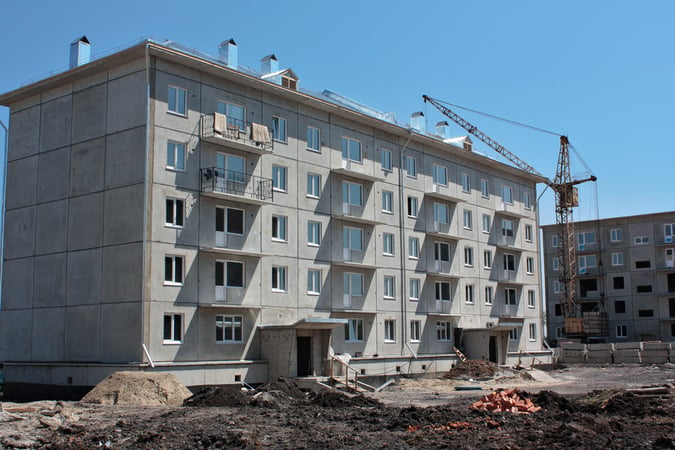Modular Construction: A Sustainable Building Method

With the rise of environmental awareness among governments and corporations, green construction practices are more popular than ever. Modular construction can make the building sector more sustainable, using materials more efficiently and minimizing waste.
How Modular Construction Reduces Waste
Around 40% of landfill waste comes from construction, and many companies are working hard to develop methods that reduce or repurpose waste. The US Environmental Protection Agency (EPA) estimates that new commercial construction generates around 3.9 lb of waste per sq. ft. They US EPA also calculated that 88 million tons of construction and demolition waste are added to landfills annually, in spite of the progress towards sustainability.
Consider that this data is only for construction, and there are other industries filling up landfills every day. This has driven many organizations towards the zero waste movement. When describing zero waste, it doesn’t refer to landfill waste only; the concept involves internal changes that eliminate waste throughout the entire supply chain.
The modular construction industry has taken the lead in waste reduction. It has been proven that modular construction can reduce waste by up to 90%, thanks to off-site construction.
Off-Site Construction Benefits
Modular construction can have positive impacts on construction waste management, reducing the environmental impact and conserving resources.
Waste Control
Individual modules are produced in factory settings, which allows better control over inventories. The leftover materials are recycled for future projects, reducing the construction waste that ends up in landfills. Materials are protected from moisture and weather conditions, and the risk of theft is greatly reduced.
Construction Quality
The bulk of a modular structure is completed in a controlled factory environment, using dry materials to prevent trapped moisture. This improves construction quality, while preventing issues like moisture damage and mold infestation.
Modular construction can make your building project more sustainable.
Modular Buildings are Reusable

Modular buildings can serve multiple purposes during their service life, and can be deconstructed without generating demolition waste.
Recycle and Reuse
A key advantage of modular structures is that they can be dismantled, relocated, and reused with minimal modification. As a result, modular construction allows for double waste reductions.
- First, the amount of waste is minimized initially with controlled modular construction methods.
- Also, by reutilizing modules, the need for new materials is reduced. This also minimizes the amount of energy required for a new construction.
Increased Adaptability
Modular construction allows for modifications or alterations in existing building, with minimal disruption for adjacent buildings or locations. In conventional buildings, renovations produce a large amount of waste that is difficult to reuse.
Other Sustainability Benefits of Modular Construction
In addition to reducing construction and demolition waste, modular buildings support other green construction practices.
Reduced Site Disturbance
Since most of the construction process takes place offsite, there is less impact on the project surroundings. Modular construction reduces the amount of vehicles and heavy equipment required on site, which translates into reduced pollution and less site disruption.
Energy Efficiency
Modular construction also provides an opportunity to incorporate energy efficiency measures directly in modules. The following are some examples:
- Energy efficient windows with low-emissivity coating.
- LED lighting with occupancy sensors
- High-efficiency HVAC systems
Conclusion
In a world with a growing concern about the environment, industries are developing methods to reduce their footprint on Earth. Since the construction industry is responsible for 40% of landfill use, waste reduction measures have a high priority. Modular construction plays a major role in making the building sector more sustainable.
Modular construction reduces waste thanks to a controlled environment. The method also delivers efficient, versatile and high-performing buildings, which can be reused multiple times. Other green benefits of modular construction are the conservation of raw materials, reduced site disruption and waste contamination, and less pollution from vehicles and heavy equipment.
The first step to save energy is knowing how your building uses it. NY Engineers can analyze your consumption with energy modeling: call (786) 788-0295212-575-5300 or write at info@ny-engineers.com.

Michael Tobias
Michael Tobias, the Founding Principal of NY Engineers, currently leads a team of 150+ MEP/FP engineers and has led over 4,000 projects in the US
Related Posts
Join 15,000+ Fellow Architects and Contractors
Get expert engineering tips straight to your inbox. Subscribe to the NY Engineers Blog below.
